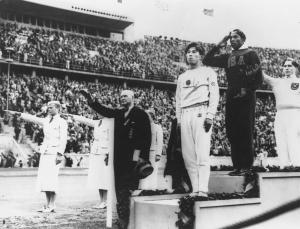|
We humans like to define things. When we type, “What’s a...” into a search engine, there are countless results and answers for us. We ourselves are not an exception. We have questioned who we are and how should we live. These questions have been highly affected by the religion of that time and place. So, people have had different concepts of defining a human being or looking at life, according to their religious values. These concepts are well described in the works of literature, which have been read by many and become an index of a certain era. Well, this is the theme of this article. We will see three works of literature which were written in different ages and places. They all are affected by different religions, so we can check the various perspectives of defining humans and life.
|
|
The first we will look at is On the other hand, Hector did not fight for his own interest. It was for his city, citizens, and his family that he fought. Also, gods participated in this battle, helping the heroes who they wanted to win. The most distinctive feature in The Iliad is the free will and sublimity which the two heroes show us. In the Trojan War, each side wins and loses the battles by the will of the gods. Gods never die; they are slightly injured at most. But humans die. Lots of people were killed in the Trojan War, including Hector. But as Achilles and Hector show us, they have their own goals which exceed the fear of dying, and that makes them fight at great risk to their own lives. They cannot change their fate, which is determined by the gods. But they are the ones who choose how to live, and what to fight for.
The second work is Thomas Hardy’s The first sin of Henchard selling his wife and daughter made him die in suffering and loneliness. He was a person with a cockeyed* personality, not an evil man. But once done cannot be undone and the stain follows him till the very end. The opposite character is Henchard’s stepdaughter Elizabeth-Jane. Her life was full of hardship; despite this, she did not commit any wrongdoing. The death of her mother, Susan, isolated her. Henchard’s mistreatment and inhospitality made her think that it would be better to die after her mother. Her only friend Lucetta used Elizabeth-Jane for her benefit, and she was forgotten by her first love, Farfrae. But she did not give up. She tried her best to make others like her and to be kind to everyone. She cultivated precious virtues, such as consideration, patience and sensibility. She bore the bitter trials that were given to her. In the end, she married Farfrae, and even forgave Henchard who had deceived her. She gained wisdom of life through her hardships. In conclusion, she who endures finds peace in the end.
The last work is So-yu’s life was the most ideal one for the gentry in Confucian society: rising in the world and gaining fame. In this way, So-yu achieved everything, but one day he suddenly felt the transience* of life. He could not stand the emptiness when he had nothing more to gain. In the end, So-yu and his eight wives realized the vanity of honor and wealth. So, they all threw away their status and prosperity, and turned to Buddhism, which promised an eternal life of transmigration*. However, these were all just a dream of Song-jin, which was planned by his mentor to make Song-jin realize that all desires and emotions are vain, just like a dream. When this novel was written, almost all men dreamed the same thing: to live life as So-yu did. But only a few could achieve this, and what comes after was futility*. Human beings, basically finite, never stop desiring. But once the desire is fulfilled, humans feel empty. So, this book recommends that instead of living a life that is no better than a one-day dream, obtain peace of mind through moderation and a belief in transmigration. |
|
Many religions suggested various perspectives of viewing humans, and we have seen only a few examples of these. Have you ever considered the reason why people throughout time have tried to define themselves? In my opinion, the definition of ourselves shows us which path to take in the journey of life. In the past, religion took this part exclusively. But these days there are a lot of people who do not have a religion, like me. Then let’s think what would take this empty part of defining ourselves. Would a new religion retake this? Or the individual faith? I am not sure. But do not stop wondering about this. It is likely to be a lifelong question, but just thinking about it surely will make your life more motivated. Before you jump to the next page, ask yourself, “Who am I?” and “How should I live?”
frivolous: to behave in a silly or light-hearted way, rather than being serious and sensible cockeyed: appearing to be physically or logically abnormal, absurd transience: passing with time or is the state of being brief and short-lived transmigration: of the soul; to pass at death from one body or being to another futility: no point in doing something usually because it has no chance of succeeding |
Lee Jumi can9803@naver.com
<저작권자 © 홍익대영자신문사, 무단 전재 및 재배포 금지>





